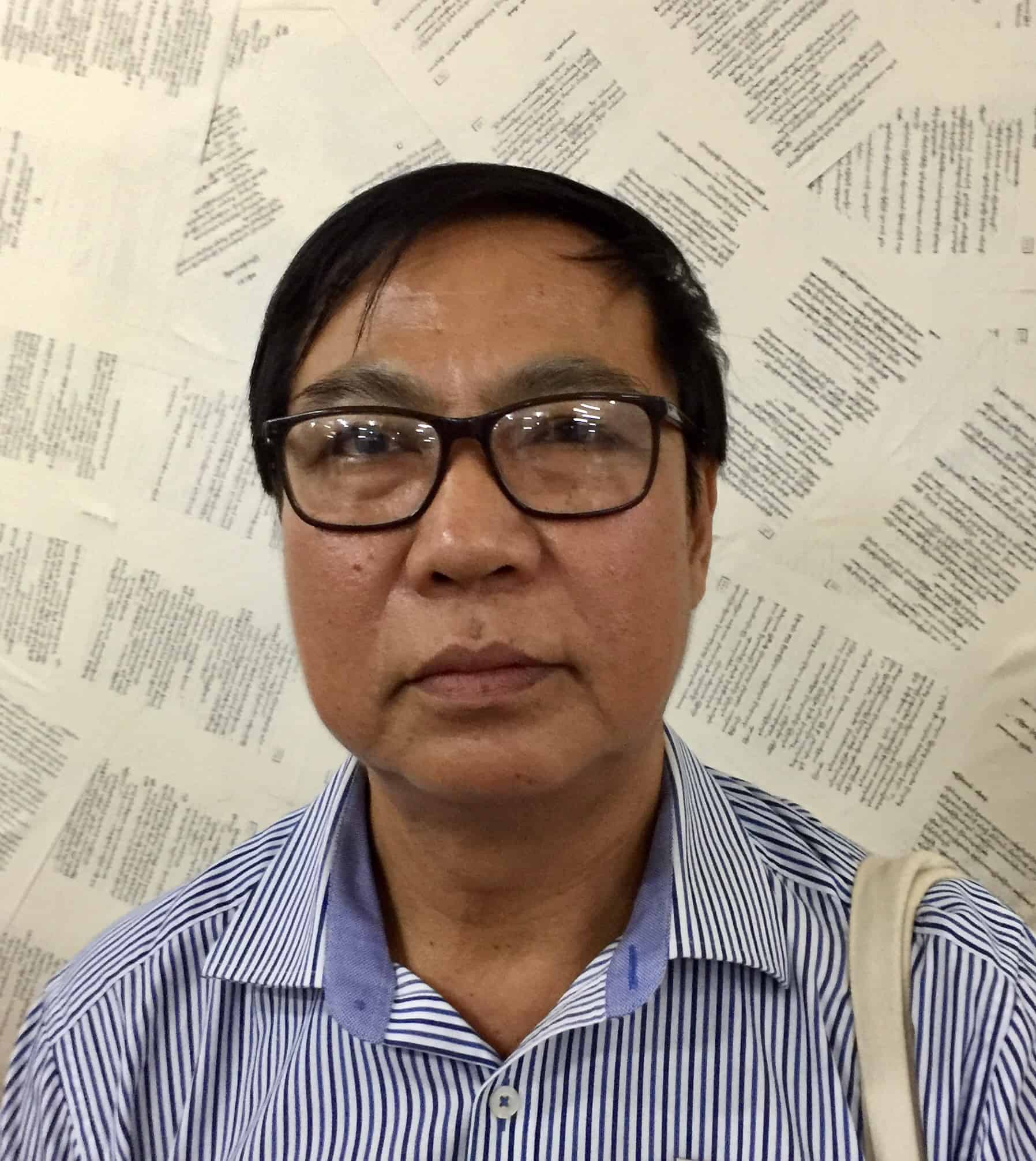Written testimony prepared for a hearing of the United States International Trade Commission
Thank you for convening this timely hearing. For a century, PEN America has united writers and their allies to celebrate creative expression and defend the liberties that make it possible. We are grateful for the opportunity to testify today.
A growing group of governments are adopting novel and expanded means of control over speech and access to information, both within and beyond their borders. I will focus my remarks today on China, but will include broader observations in my written submission.
It is essential to recognize Chinese censorship for what it is: a system of domestic dictates that is being extended in an attempt to shape global attitudes and perceptions. The raison d’etre of the Chinese Communist Party (CCP)’s censorship is regime perpetuation. To allow criticism, skepticism, or exposure to political alternatives within the mainland is seen as a threat to CCP rule. The Tiananmen Square uprising, color revolutions, Arab Spring, and Hong Kong Umbrella movements have etched within the CCP a recognition of how flashes of dissent can catalyze transformational movements. Increasingly, the CCP sees regime survival as dependent not only on constricting speech within China, but on dominating global narratives about China. This impetus is several-fold. In a commercially integrated world, borders are porous when it comes to ideas and information. Revelations that germinate outside China will inevitably seep through cracks in the Great Firewall and could foster domestic instability. China’s continued economic and geopolitical growth depends upon the readiness of foreign governments and peoples to do business with Beijing. China’s global reputation is essential to its rise. This renders the fight to shape perceptions a battle in which censorship is a prime weapon.
Under President Xi Jinping, China’s censorship regime has tightened. The list of redlined topics, once widely seen as centered on the so-called three Ts—Tiananmen, Taiwan, and Tibet—has become far more encompassing to include discussions of the Uyghur minority population, criticisms of the handling of COVID-19, #MeToo, vaccine scandals, government corruption, Sino-U.S. relations and many other topics.
Overt censorship—defined rules about what can and cannot be said—comprises a crucial component of the problem. For companies doing business in China, and now in Hong Kong as well, there are strict redlines. If you don’t abide, you will be forced out of the market.
Increasingly, though, Beijing’s censorship does not stop at the water’s edge. China’s government exerts a less overt but nonetheless potent constricting influence on speech worldwide, brazenly using its economic leverage to dictate the muzzling of ideas it sees as hostile. Those outside China must increasingly grapple with the risk that offending the Chinese government, violating a redline, or even doing business with someone who casts doubt on Beijing’s official narrative can spell an end to access to the world’s largest consumer markets. I call this not censorship, but censoriousness. When it comes to overt censorship, while the rules shift and expand, the basic parameters are well understood.With regards to censoriousness, the boundaries, enforcement mechanisms, and potential consequences are more opaque.
China is exerting these powers ever more expansively. Last year, Beijing imposed the Hong Kong National Security Law, allowing the indictment of anyone in the world for speech seen as harmful to Chinese security interests. The impact of China’s censorship practices affects many American industries, including Hollywood, publishing, media and journalism, higher education and social media companies, each of which I will address briefly.
Impacts on the film industry
In Hollywood, U.S. filmmakers face dilemmas as they compete for access to Chinese audiences, where China’s Central Propaganda Department sharply limits the content and accessibility of foreign movies so they “transmit the glorious Chinese culture or promote core socialist values.” China’s film industry is expected to reach $15.5 billion by 2023. The government’s rampant censorship and penchant for retaliation against its critics have created a system where self-censorship or even collaboration with the CCP have become business as usual at some Hollywood Studios. PEN America’s 2020 report, Made in Hollywood, Censored in Beijing, addresses this topic in detail and is linked in my written testimony. The report details numerous examples of studio executives and other decision makers altering plotlines to glorify Chinese characters, removing references to forbidden topics, or scuttling plot turns that cast China in a negative light.
Our report documents that these patterns have resulted in Chinese governmental sensitivities becoming internalized among Hollywood directors, actors, and studio executives. Chinese censorship agencies no longer need to do much to ensure that highly sensitive plot lines or topics are avoided in the global film industry. The result is a kind of acquiescent, anticipatory, even subconscious censoriousness whereby U.S. businesses and professionals have absorbed Chinese taboos as integral to their success. Studios also see a sometimes conveniently blurry line between the demands of the Chinese government and the predilections of Chinese audiences. By telling themselves that certain plots or stories may put off Chinese theatergoers, global moviemakers can skirt depictions that would offend the censors while telling themselves that they are simply tailoring their storytelling to consumer demands.
Publishing
In publishing, foreign authors may be forced to choose between complying with China’s censorship practices or having some or all of their work excluded from the Chinese market, the world’s second-largest. In 2015 PEN America published a report, Censorship and Conscience: Foreign Authors and the Challenge of Chinese Censorship, about Western writers who were never consulted when their books were censored in Chinese translation. The censors removed not only discussions of China, but references to homosexuality, the supernatural, and other topics known to trigger Chinese censors. In 2020, economist Thomas Piketty refused to cut sections of his work Capital and Ideology and will forgo mainland publication as a result.
The growing interplay between China and the publishing industry raises the prospect of Chinese censorship influencing the book industry not just in China but globally. There are already instances of publishers in Australia, England, and Germany coming under direct pressure from the CCP, or engaging in anticipatory self-censorship to scuttle certain titles. It stands to reason that China’s censorious and punitive approach may have the effect of gradually stifling the publication of books critical of Beijing or crossing the CCP’s redlines.
Journalism
In 2020, China expelled the largest number of foreign journalists since the Tiananmen Square massacre in 1989, including all workers of The New York Times, The Wall Street Journal, and The Washington Post. There are now just 39 American journalists reporting in the country. Foreign journalists working in the mainland have been subject to potential harassment, physical abuse, denial of or threatened denial of visas, online and in-person surveillance, and restricted access to certain areas of the country. In 2016, PEN America released a report, Darkened Screen: Constraints on Foreign Journalists in China, that detailed China’s mechanisms for curtailing access for foreign journalists. Our report also documented how some U.S.-based outlets have pulled their punches in covering China in order to sustain their access to or protect lucrative lines of business important to their corporate owners. T
he work of journalists to track and interpret Beijing’s reasoning, economic imperatives, and Chinese social order is essential to sound decision-making in the West, not just for governments, but for businesses and institutions. The Chinese government’s ability to draw a curtain around itself by constricting access to Western news outlets and incentivizing them to avoid critical coverage creates blind spots. It also risks clouding American audiences’ understanding of society, politics, and current events in China and ability to effectively manage the U.S.-China relationship.
Censorship of campus speech & U.S. higher education
While this does not represent a direct effect on U.S. companies, China’s influence on U.S. higher education has implications for scientific research, technological advancement, and the ability of scholars to help the rest of global society make sense of China. American scholars have endured state-supported harassment for advocating for the rights of minority groups in China domestically. There have long been concerns that Chinese government-funded Confucius Institutes operate as proxies for the Chinese government on U.S. campuses, curbing academic freedom on China-related subjects. There are also persistent allegations that Chinese Student and Scholar Associations, which act as social hubs for Chinese expatriate communities on more than 140 U.S. campuses, coordinate with Chinese consulates and embassies in efforts to influence and neutralize political commentary about China. In 20192020, 372,000 Chinese students took courses in the U.S., representing one-third of all foreign students studying here. These students are a critical source of tuition revenue for many universities and academic programs. Yet close ties and active monitoring of Chinese students in the U.S. by the CCP may mean that universities reliant on Chinese students must consider what they and their faculty say, condone and publish so as not to jeopardize this revenue stream. U.S. universities are also increasingly fundraising in China, having collectively raised more than $1 billion there between 2013-2019. These relationships raise complex questions about how to distinguish between the Chinese government and Chinese people, including particularly those with links to the CCP and the Chinese military. Yet, particularly amid a climate of rising anti-Asian animus, probing the ramifications of these ties can feed suspicions and prejudices, which can themselves impair the free flow of speech and thought. Understanding these intertwined influences and their implications for free expression should be a key element of how the U.S. responds to an ascendant China.
Social media
The landscape for foreign social media and technology companies in China is equally challenging. Most American platforms are blocked from operating in the country, and the few that remain regularly sacrifice product services to appease the CCP. China has blocked Youtube, Facebook, Twitter, Instagram, Pinterest, and Snapchat. Google shut down its Chinese search engine in 2010 after discovering that human rights activists’ Gmail accounts had been hacked. PEN America addressed this topic in depth in a 2018 report, Forbidden Feeds: Government Controls on Social Media in China.
As economic pressures to engage with China increase, companies like Google are reconsidering their relationships with the CCP and have discussed plans to open new, censored social media and internet services within the country. In 2018, reports emerged that Google was pursuing the possibility of launching various filtered news and search apps within China, a plan they apparently abandoned under pressure. Apple has made a number of alarming decisions to compromise app services, data privacy, and user protection measures to sustain access to Chinese markets. Even companies that do not offer their services within China often accept Chinese advertising revenue, including from government sources. Some analysts suggest that Facebook may earn as much as $5 billion per year from China, and employees have raised concerns about how that revenue is influencing content moderation decisions relating to Chinese sensitivities including the treatment of Uyghurs in Xinjiang.
One of the greatest challenges that censorship and censoriousness pose is their penchant for invisibility. Particularly when the targets of censorship are heavily incentivized to accede to it, distortions of our public discourse, suppressed ideas, and the reification of falsehoods can go unspoken and unacknowledged. More information and transparency are urgently needed. I call on the United States International Trade Commission and United States government to probe deeply into the ways that censorship and censorious influence are shaping American business and the world and to make its findings public.












